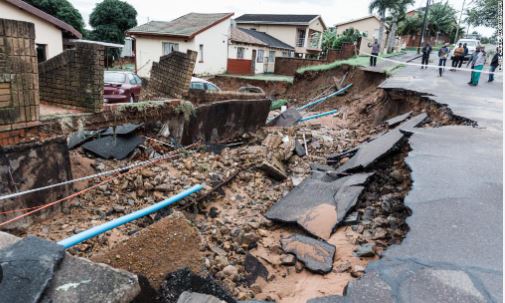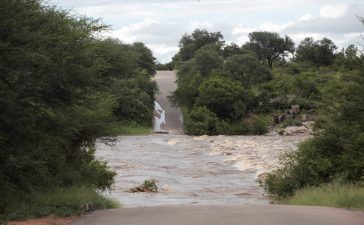South Africa’s tourism industry is grappling with significant challenges as extreme weather events, driven by climate change, continue to escalate. Recent incidents include devastating floods, an unusual tornado in KwaZulu-Natal, and severe cyclones in the Western Cape, all of which have caused extensive damage to tourism infrastructure and disrupted operations.
Coastal tourism has been particularly hard-hit. Rising sea levels, intensified tropical and mid-latitude cyclones, and severe storms have wreaked havoc on popular destinations. The April 2022 floods in KwaZulu-Natal, which claimed 435 lives, resulted in R7 billion (US$387 million) in damages, severely impacting 826 companies, many within the tourism sector. The more recent June 2024 tornado and subsequent storms further exacerbated the situation, destroying holiday homes and disrupting air traffic, with significant financial repercussions.
Inland tourism is also under threat. The Kruger National Park, one of Africa’s largest game reserves, faces increasing risks from floods and droughts, endangering vital tourism infrastructure. Additionally, the Mapungubwe National Park, a UNESCO World Heritage Site, has been identified as a flood hotspot, raising concerns about the preservation of its rich historical heritage.
As sea levels rise, the Garden Route National Park on the Indian Ocean’s coast is at perpetual risk, with parts of the park already flooded during high spring tides. Coastal erosion and fires, exacerbated by rising temperatures, pose further risks to iconic sites like the Table Mountain National Park.
Experts, including human geographer Kaitano Dube, warn that without urgent adaptation measures, the future of South Africa’s tourism industry is at risk. There is an urgent need for resilient infrastructure, stricter building codes, and robust early warning systems to mitigate the damage from these increasingly frequent and severe weather events.
Source: Africa.com







